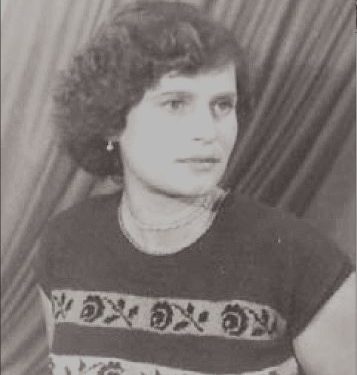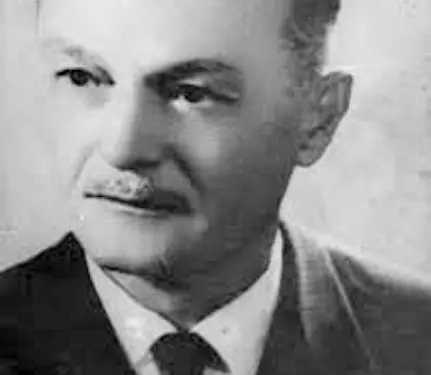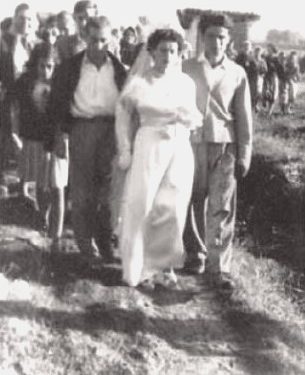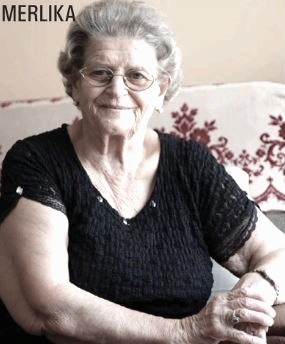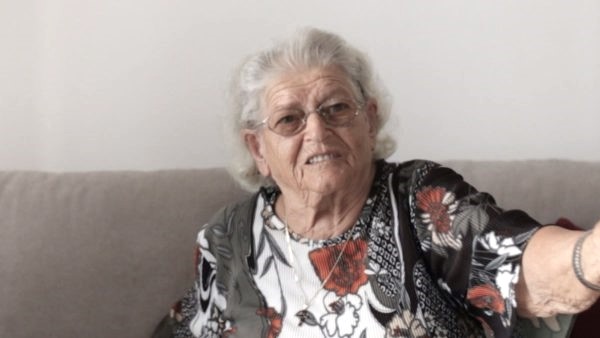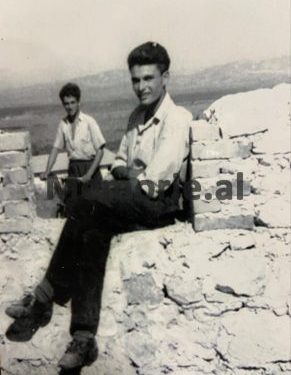By Ermira Isufaj
Memorie.al / They have called him a symbol of survival, as he has visited almost all the internment camps of Albania. Klara Merlika, the daughter-in-law of the son of the former Prime Minister Mustafa Merlika, went into exile wearing a school uniform, to get out of there, as a mother and grandmother of grandchildren…! The childhood years remained for him the purest and most beautiful memories…! Not only for the fact that she was the daughter of a rich family from Pukja, her father Pashuk Bibë Mirakaj, a well-known merchant of the area who developed trade with Kosovo, but also because until the age of 10, life had offered her everything she had dreamed of. For Klara Mirakaj, the black cloud would come right after the position of her uncle, Col. Bibë Mirakaj, who was appointed Minister of the Interior during the fascist regime and with the advent of communism, the entire family of the Mirakaj tribe, would pass “in the eye of the needle”!
Shot, disappeared whose grave has not yet been found, as well as many exiled over the years. The escape of her father and two uncles abroad, just to avoid falling into the hands of the communists, would cost Klara a full 45 years of exile. She entered with a school apron and left the camp doors as a mother and grandmother of grandchildren…! Therefore, it is no coincidence that they call it a “symbol of survival” of the suffering in the concentration camps. She separated from her father at the age of 10, never to see him again, while her mother died in her arms while they lived in Savër, Lushnja, where she was buried.
Yes, in exile, Klara also experienced the most solemn moment in a person’s life, what practically should be the most unforgettable moment: the white dress and the wedding, even the birth of grandchildren. The marriage with Fatos, the son of the former Prime Minister Mustafa Merlika, would make her sentence heavier, especially after the threat that Mehmet Shehu himself had made to her husband in prison. It’s been 45 years of exile, and today 90-year-old Klara Merlika (Mirakaj) has a lot to confess…!
Klara, why was the Mirakaj family hit so hard during the communist system? What is your family history?
The biggest consequences for our family came after the escape of my two uncles and my father. Being a family of kulaks, which was engaged in trade, which took place mainly in Prizren of Kosovo, my father and the Mirakaj tribe as well, could not access the communist system. My uncle, Col. Bibë Mirakaj, during the fascist regime that was established in Albania, took an important state post, after being appointed Minister of the Interior.
But, with the advent of communism, the consequences were known, and this forced the two uncles, together with my father, Pashuku, to escape from Albania in 1944. Our whole family and tribe were against this totalitarian regime, because it was known that after communism, poverty would be rampant in the country, the line of espionage, therefore we judged that it was an “outdated” political dogma.
Of course, you learned these political notions later, because when you were arrested together with your mother, you were only 10 years old, right?
The father escaped in order not to fall into the hands of the communists, as well as the uncles, but for us, their family members, great trouble would come. Many of our cousins were shot, so much so that today their graves are not even found, others were imprisoned until they died in the cold dungeons…! My family, my mother together with my sister and brother, suffered in exile for a long time. I was 10 years old when I broke up with my father, never to see him again for the rest of my life.
I have fixed in my mind the day when I just separated from my classmates, wearing my elementary school apron, I was in the third grade, and as I approached the house, I saw some big men, who had filled the yard and a car was waiting outside. But, the lowest gesture was precisely the moment when they, after looting the clothes, began to divide them according to preferences in front of our eyes. There was a man named John, who was addressed by all the Security people present there.
As we were in our body clothes, they put us in the truck. While the uncle’s daughter-in-law asked for a cover to put on her 10-day-old child’s arm, so that the sun wouldn’t beat her face, the Security people didn’t let her…! She then took off the apron tied around her waist while doing the housework and threw it over the child…!
After you were taken from your home, where did they take you?
First, they took us to a house turned into a prison in Shkodër, which was located in front of Gjon Marka Gjon’s house. There were also several other families, that of Gjon Destanisha (a well-known ex-officer of Zogu), Lucie Mala of Marka Gjon’s family, as well as some other well-known families from the North of Albania, such as Ndreaj, Kaloshë, Kolaj of Mati, etc.
After we stayed for almost six months in this country, we were sent to the Berat internment camp. At first there was a house near the castle, but we had no opportunity to live well…! Apart from body clothes, we only had one bowl, which at dinner was filled with the food that was cooked in the army barracks, and there in the liquid of the food, we dipped pieces of bread little by little, because we didn’t even have a spoon.
You were still a little girl, no more than 11 years old. How did you spend your days at camp?
Being part of large families, at the beginning and at the end of the camp were the bathrooms, and we from the Mirakajs (my uncle’s wife, she was a minister’s wife) together with Bardha Markagjon, were placed at the end, in a space outside of any normal conditions…! You couldn’t even call it survival. It took a lot of effort from my mother and uncle’s daughter-in-law to clean the place around until it got an acceptable look.
We stayed in Berat from 1944 to 1949, almost five years. Many times there in the camp, the disease of malaria, typhus, and small children died one after another. Over 20 children died in one night, and I will never forget a tall woman from Shkodra, Cuklina was her name, whose twin babies died of typhus. The dry lips of those children, I have before my eyes (crying).
I stayed with my mother and my family all the time, while my mother did her best to enroll me in the fourth grade, in a school near the camp, just to spend a few hours of the day. I remember that several times in a row, I accompanied mine to the Kuçova Prison, because nearby the Kozarë-Kosovo canal was being built by the prisoners, while they also took people from other internment camps.
Then you went to the infamous Tepelena camp, who was the other known families of co-sufferers there?
After Berat, in 1949, they put us on a truck to move us to the Tepelena camp. Initially, the vast majority of the convicts there were from the North of Albania. I remember that apart from Bardha Markagjon, there was also the daughter of Abaz Kup, Hyrija, as well as several persecuted relatives of Jozefina Topalli. The Tepelena camp was torture in itself.
I was present during the winter period, where someone happened to die, and because of the cold, the corpse could stay more than three days in the house, and they did not show, only to take the bread ration of the dead person. . We ate kazani dishes, while we took the bread ration from the oven. The bread often also had small red flies, from those that are usually found in flour.
When there were no beans, they gave us oatmeal with worms, which came out on top of the kettle where the food was boiled, for the whole camp. We were fed in scandalous conditions, so much so that today I am surprised, how I am still alive…! We stayed in Tepelena until 1954. In the afternoons, I went together with my peers to collect wood for the kettles where the food was cooked.
We were loaded with wood, so much so that we no longer felt our backs, while by order of the camp leaders, I happened to accompany my mother in the jobs they assigned, in agriculture, working the land, or even other times when they took us to the Four the streets of Shijak in the Brick Factory, to work at the rate. We were also sent to Peqin, during the time when the railway line was being built, with the contributions of prisoners and the politically persecuted.
You spent the most important events of a man’s life in internment camps. How did you meet Fatos, the son of the former prime minister, during the fascist occupation, Mustafa Merlika?
After the Tepelena camp, a written letter came from an operative of the Security, that the Mirakaj family would be moved to Savër in Lushnja. There the situations started to change a little, due to the fact that we worked in agriculture, but we also received a small payment. We worked the agricultural lands, took care of cattle, and collected cotton, which we carried in sacks on our backs, from one place to another.
In Lushnja, I also got to know Fatos, then he was a young man, a student, imprisoned precisely because of his father, Mustafaj, a very attacked figure, especially during the communist regime. So much so that after the marriage, Fatosi told me his memories and the threat he had made to Mehmet Shehu in prison, during a routine visit. Mehmet had told him that; when all the Albanians died one by one and when the blood reached their knees, then Mustafa Merlika would return to Albania.
You got married in exile, but did the connection of the crown with Fatos make your situation a little worse?
It was not my wedding! I dressed in a white dress and took a walk around the camp, through the doors of the co-suffering families there. The next day we immediately went back to work, and just one day after the wedding, Fatos was forced to go to work in the Gradishti swamp. During the day, a Security officer knocks and, satisfied with the decision to deport my husband, asks me if I would leave him or follow him wherever the state would transfer him.
I was married to Fatos, and I had decided to follow him wherever he was assigned. I spent the most beautiful and saddest moments of my life in the internment camps. Marriage is just a chapter… My mother died in the camp, we buried her there. In the camp, my daughter was born and Fatos and I decided to have only one child, so as not to take revenge on life, suffering… You cannot torture yourself and the child in the conditions in which we lived.
Why have you been called a symbol of the survival of the concentration camps?
Because I resisted 45 years in those extraordinary conditions! Not only the vital needs, which could not be met, with bread with flies and rotten oatmeal, with beds for soldiers placed in places that had served as needy, for years…! The tiring work of the arm, so much so that sometimes our hands would bleed and we could not do anything, because even the nurses and doctors did not bring them to us, due to the fact that we were an interned family, they made our lives very difficult.
I have walked in all the internment camps of Albania, and in these places, I have experienced the most beautiful and difficult moments of my life, from the birth of my daughter, to the death and burial of my mother in the camp…! While I separated from my father at the age of 10, never to see him again. Memorie.al




